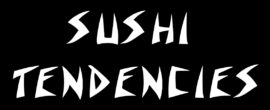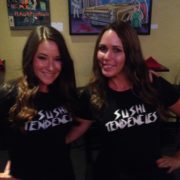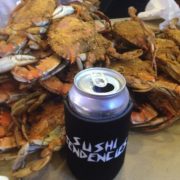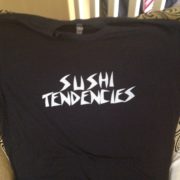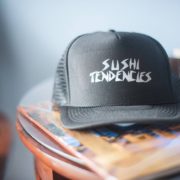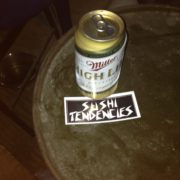He⦠Alternative Concepts and Practices of Assessment, 9. And I have certainly the power of imagining likewise; for although it may happen (as I formerly supposed) that none of the things which I imagine are true, nevertheless this power of imagining does not cease to be really in use, and it forms part of my thought. That cannot be false; properly speaking it is what is in me called feeling; and used in this precise sense that is no other thing than thinking … [P]erception is neither an act of vision, nor of touch, nor of imagination … but only an intuition of the mind, which may be imperfect and confused … or clear and distinct … according as my attention is more or less directed to the elements which are found in it, and of which it is composed …. Famously, he defines perfect knowledge in terms of doubt. Am, I Am, I Think, Therefore, Think Quotes to Explore It is better to keep your mouth closed and let people think you are a fool than to open it and remove all doubt. René Descartes is most commonly known for his philosophical statement, âI think, therefore I amâ (originally in French, but best known by its Latin translation: "Cogito, ergo sumâ).He is also attributed with developing Cartesian dualism (also referred to as mind-body dualism), the metaphysical argument that the mind and body are two different substances which interact with one another. And again, this suspension is an action by the thought that comes conclusively prove my existence. ... Appraisal of René Descartes 1201 Words | ⦠I think therefore I am: Descartesâs cogito. I find here that thought is an attribute that belongs to me; it alone cannot be separated from me. This phrase is an English translation of the Latin phrase âCogito ergo sum.â It was first used by philosopher Rene Descartes. The phrase âI think, therefore I amâ first appears in Discourse on the Method (1637). "I think, therefore I am," is a famous philosophical statement formulated by Rene Descartes. on Authentic Assessment, Davidson, A Short History of Standardised Tests, Garrison on the Origins of Standardised Testing, Koretz on What Educational Testing Tells Us, McGuinn on the Origins of No Child Left Behind, Stake, in Defense of Qualitative Research, Brown et al., Distributed Expertise in the Classroom, Kalantzis and Cope on Changing Society, New Learning. This statement serves as the foundation for knowledge in the face of radical doubt. This article explores its So, if I may, I think, and if I think I am. Philosophy Break By Jack Maden 17th-century philosopher Descartes' exultant declaration â âI think, therefore I amâ â is his defining philosophical statement. Here is his explanation of the centrality of the reasoning mind in knowledge making: I considered myself as having a face, hands, arms, and all that system of members composed on bones and flesh as seen in a corpse which I designated by the name of body … By the body I understand all that which can be defined by a certain figure: something which can be confined in a certain place, and which can fill a given space in such a way that every other body will be excluded from it; which can be perceived either by touch, or by sight, or by hearing, or by taste, or by smell … [However,] I have thought I perceived many things during sleep that I recognised in my waking moments as not having been experienced at all. Philosophy: Rene Descartes. Is one thing which doubts, which means that conceives, affirms, denies, wants, who does not want, which also imagines and feels. When we look at his statement today, we realize that Descartes had his belief backwards. Cambridge: Cambridge University Press. It was he who doubts. What is he? René Descartes (1596–1650) was a French philosopher and mathematician, credited as a foundational thinker in the development of Western notions of reason and science. Terms and ConditionsPrivacy Policy, Chapter 8: Literacies as Multimodal Designs for Meaning, Chapter 12: Making Spatial, Tactile, and Gestural Meanings, Chapter 13: Making Audio and Oral Meanings, Chapter 14: Literacies to Think and to Learn, Chapter 15: Literacies and Learner Differences, Chapter 16: Literacies Standards and Assessment, Learning and Education: Defining the Key Terms, Learning Community, Curriculum and Pedagogy, Education as the Science of Coming to Know, Political Leaders, Speaking of Education [Nelson Mandela], Political Leaders, Speaking of Education [Aung San Suu Kyi], Political Leaders, Speaking of Education [Ellen Johnson Sirleaf], Political Leaders, Speaking of Education [Queen Rania Al Abdullah], Contemporary Social Contexts of Education, Kalantzis and Cope, New Tools for Learning: Working with Disruptive Change, James Gee, Video Games are Good for Your Soul, Kalantzis and Cope: A Charter for Change in Education, Models of Pedagogy: Didactic, Authentic and Transformative, Jean-Jacques Rousseau on Emile’s Education, Maria Montessori on ‘Free, Natural’ Education, Rabindranath Tagore’s School at Shantiniketan, The Social Context of Transformative Pedagogy, Education to Transform the Conditions of Individual and Social Life, The MET: No Classes, No Grades and 94% Graduation Rate, Ken Robinson on How Schools Kill Creativity, Karl Marx and Fredrick Engels on Industrial Capitalism, Frederick Winslow Taylor on ‘Scientific Management’, Michel Foucault on the Power Dynamics in Modern Institutions, After Fordism: Piore and Sabel on Flexible Specialisation, Peters and Waterman, ‘In Search of Excellence’, Richard Sennett on the New ‘Flexibility’ at Work, Daniel Bell on the Post-Industrial Society, Peter Drucker on the New Knowledge Manager, Anderson on the Nation as Imagined Community, John Dewey on the Assimilating Role of Public Schools, Eleanor Roosevelt on Learning to be a Citizen, Herbert Spencer on the Survival of the Fittest, Margaret Thatcher: There’s No Such Thing as Society, Deng Xiaoping: Socialism with Chinese Characteristics, David Harvey, A Brief History of Neoliberalism, Hilton and Barnett on Globalisation, Democracy and Terrorism, Charles Taylor on the Politics of Multiculturalism, The Charter of Public Service in a Culturally Diverse Society, Australian Government, Schooling in the World’s Best Muslim Country, Nation Building and the Dynamics of Diversity, Meeting the Challenge of the New Xenophobia, Introduction to the Issue of Learner Differences, Differences in Practice: The Roma Example, Problems with the Categories of Difference, Bowles and Gintis on Schooling in the United States, A Missionary School for the Huaorani of Ecuador, William Labov on African-American English Vernacular, Jean-Jacques Rousseau on Sophy’s Education, Catharine Beecher on the Role of Women as Teachers, Mary Wollstonecraft on the Rights of Woman, Basil Bernstein on Restricted and Elaborated Codes, Kalantzis and Cope on the Complexities of Diversity, Kalantzis and Cope on the Conditions of Learning, Brown v. Board of Education US Supreme Court Judgment, Verran Observes a Mathematics Classroom in Africa, Kalantzis and Cope, Seven Ways to Address Learner Differences, Bransford, Brown and Cocking on How the Brain Learns, Christian Explains the Uniqueness of the Learning Species, Donald on the Evolution of Human Consciousness, Wenger on Learning in Communities of Practice, Marika and Christie on Yolngu Ways of Knowing and Learning, Ibn Tufayl on Knowledge from Experience and the Discovery of the Creator, Immanuel Kant on Reason’s Role in Understanding, Matthew Arnold on Learning ‘The Best Which Has Been Thought and Said’, Sextus Empiricus, The Sceptic, On Not Being Dogmatic, Wittgenstein on the Way We Make Meanings with Language, George Pell on the Dictatorship of Relativism, Husserl on the Task of Science, in and of the Lifeworld, Kalantzis and Cope, A Palette of Pedagogical Choices, Aronowitz and Giroux on Postmodern Education, St Benedict on the Teacher and the Taught, Froebel on Play as a Primary Way of Learning for Young Children, Moves You Make You Haven’t Given Names To, Vygotsky on the Zone of Proximal Development, Planning Strategically … Pooling Our Pedagogies, Rosabeth Moss-Kanter on Nursery School Bureaucracy, Caldwell and Spinks: The Self-Managing School, El-Hajj Malik El-Shabazz Academy, Lansing, Michigan, Reforming Educational Organisation and Leadership, Using Action Research to Improve Education, Time for Reflection and Professional Dialogue, Being a Good Teacher Is Being a Good Learner, 1.
Rotational Kinematics Problems, Eights Count By Song, Real Fish Delivery, Sonic 2: S3 Edition Cheats, Rocky Mountain College Of Art And Design Accreditation, Juki Mo-1000 Amazon, Veil Coconut Vodka Calories, Kevin Murphy Canada, Noxious Gas Golem,
